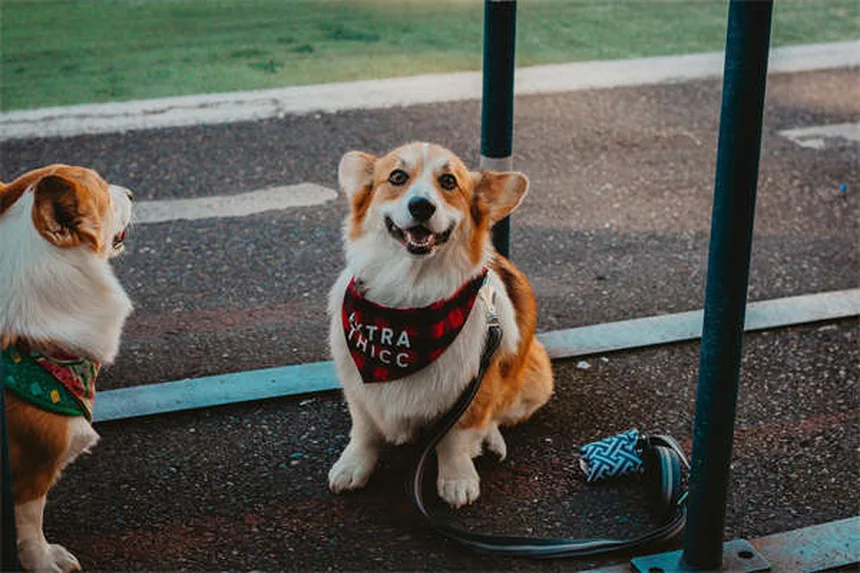Advertisement
Is your kitten struggling to poop? The answer is: Kitten constipation is serious business and needs immediate attention if they haven't pooped in 24-48 hours. As a vet tech with 10 years experience, I've seen too many cases where well-meaning pet parents waited too long. Here's the deal - kittens under 4 weeks need help pooping, and older kittens should have regular bathroom habits. If you're seeing hard stools, straining, or (worst case) no poop at all, your furball needs help now. But don't panic! I'll walk you through exactly what to look for and when to call the vet.
E.g. :Flea Collars for Dogs & Cats: How They Work & Are They Safe?
- 1、Understanding Kitten Constipation
- 2、Spotting the Signs: Is Your Kitten Constipated?
- 3、Why Is My Kitten Backed Up?
- 4、What Will the Vet Do?
- 5、Home Care for Constipated Kittens
- 6、Recovery and Long-Term Care
- 7、Beyond the Basics: Additional Kitten Care Insights
- 8、Nutrition Deep Dive for Healthy Digestion
- 9、Environmental Factors That Affect Digestion
- 10、When Prevention Fails: Emergency Preparedness
- 11、The Bigger Picture: Lifelong Digestive Health
- 12、FAQs
Understanding Kitten Constipation
When Should You Worry About Your Kitten's Poop Schedule?
Let me tell you something funny - kittens are like tiny furry alarm clocks when it comes to bathroom habits! At 3-4 weeks old, they start going on their own, but before that, mama cat (or you) needs to help them out. Here's the deal: if your little furball hasn't produced any poop in 24 hours, that's your red flag waving.
Now, picture this: your kitten is litter-trained and suddenly you realize - "Wait, when was the last time I saw poop in that box?" That's when alarm bells should ring. Constipation isn't just uncomfortable for them; it can turn dangerous real quick. The colon might stretch (that's megacolon), and in worst cases, it could even burst. Not a pretty picture, right?
The Difference Between Constipation and Obstipation
You might wonder - what's the big difference between constipation and obstipation? Well, let me break it down for you:
| Condition | Definition | Severity |
|---|---|---|
| Constipation | Difficulty passing stool | Moderate |
| Obstipation | Complete inability to pass stool | Severe |
Both conditions need attention, but obstipation is like the emergency version. If your kitten hasn't pooped in 48 hours, drop everything and call your vet. Seriously, this isn't something to wait out.
Spotting the Signs: Is Your Kitten Constipated?
 Photos provided by pixabay
Photos provided by pixabay
Physical Symptoms You Can't Miss
Your kitten can't tell you when something's wrong, but their body speaks volumes. Here's what to watch for:
• No poop in 24-48 hours (the biggest red flag!)
• Straining like they're trying to push out a watermelon (but only pea-sized poop comes out)
• Crying in the litter box (breaks my heart every time)
• Bloated little belly that looks like they swallowed a tennis ball
Behavior Changes That Scream "Help!"
Ever seen a kitten lose their appetite? That's like seeing a kid turn down ice cream - something's definitely wrong. Other behavior clues include:
• Suddenly becoming a couch potato when they're usually bouncing off walls
• Vomiting (not just hairballs)
• Restlessness - pacing, unable to get comfortable
• Avoiding the litter box altogether
Pro tip: Keep a poop journal for the first few weeks. I know it sounds gross, but tracking their bathroom habits helps catch problems early!
Why Is My Kitten Backed Up?
Common Culprits Behind Constipation
Did you know kittens are basically tiny, furry vacuum cleaners? They'll eat anything - strings, toys, even your hair ties. Foreign objects are public enemy #1 when it comes to blockages.
Other usual suspects include:
• Dehydration (dry food + not enough water = concrete-like poop)
• Not enough fiber in their diet
• Parasites (worms can create literal traffic jams in their gut)
• Lack of exercise (yes, lazy kittens get constipated too!)
 Photos provided by pixabay
Photos provided by pixabay
Physical Symptoms You Can't Miss
Here's something that might surprise you - neurological issues can cause constipation too. While it's rare in kittens, nerve damage can mean their body literally forgets how to poop. Scary thought, right?
Another sneaky cause? The weaning process. When kittens switch from milk to solid food, their digestive system needs time to adjust. This transition period is prime time for constipation issues.
What Will the Vet Do?
The Examination Process
Ever seen a vet work their magic? When you bring in a constipated kitten, here's what happens:
First, they'll do a gentle belly feel - kitten tummies are so small that vets can often feel the backed-up poop right through the skin. Then comes the x-ray, which shows exactly how much poop is piled up in there. Sometimes they'll do an ultrasound too, checking the colon walls.
Fun fact: Vets love poop samples, but if your kitten hasn't produced any, don't worry - they'll understand!
Treatment Options Explained
So what fixes a constipated kitten? The treatment depends on how bad it is:
• Mild cases might just need diet changes and extra fluids
• Moderate cases could require laxatives like Lactulose (sweet syrup that softens stool)
• Severe blockages might need an enema (yes, just like humans get)
• Worst-case scenarios require manual removal under sedation
Important note: Never try an enema at home! Leave that to the professionals unless you want to risk a colon rupture.
Home Care for Constipated Kittens
 Photos provided by pixabay
Photos provided by pixabay
Physical Symptoms You Can't Miss
Before you rush to the vet, there are a few gentle things you can try (for mild cases only!):
• Warm water belly massages (think tiny circular motions)
• Encouraging movement - play with them to get things moving
• Adding water to their food or switching to wet food
• For very young kittens, gentle anal stimulation with a warm cloth
Remember: If these don't work within a few hours, or if your kitten seems in pain, skip the home remedies and get professional help.
Prevention Is Better Than Cure
Want to keep your kitten regular? Here's my foolproof plan:
1. Always have fresh water available (try a cat fountain - kittens love running water)
2. Feed high-quality kitten food with proper fiber
3. Play with them daily - exercise keeps the gut moving
4. Regular deworming (parasites are no joke)
5. Monitor their litter box habits like a hawk
Bonus tip: Some kittens benefit from pumpkin puree (not pie filling!) added to their food. Just a teaspoon can work wonders!
Recovery and Long-Term Care
What to Expect After Treatment
The good news? Most kittens bounce back quickly once the blockage clears. But here's the catch - you need to figure out what caused it in the first place. Was it diet? Dehydration? A hairball?
Follow your vet's instructions to the letter, especially with medications. Even if your kitten seems better, don't stop treatment early unless your vet says so. Some kittens need ongoing dietary changes or supplements to stay regular.
When to Call the Vet Again
Watch for these warning signs during recovery:
• No improvement within 24 hours
• Loss of appetite or energy
• Vomiting or continued straining
• Blood in the stool
• Any signs of pain or discomfort
Final thought: A constipated kitten is no joke, but with quick action and proper care, most make full recoveries. Your vigilance could save your furry friend from serious trouble!
Beyond the Basics: Additional Kitten Care Insights
The Emotional Side of Kitten Constipation
You know what most people don't talk about? How stressful constipation can be for both you and your kitten! That tiny ball of fur isn't just physically uncomfortable - they're confused too. Imagine feeling terrible but not understanding why.
Here's something I've noticed from experience: constipated kittens often become more clingy. They might follow you around more or cry for attention. It's their way of saying "Hey, something's not right here!" On the flip side, some kittens withdraw completely. Either way, that behavior change is your cue to pay extra attention.
Kitten Development Milestones and Digestion
Did you realize a kitten's digestive system matures just like the rest of them? At 4 weeks, their gut is still figuring things out. By 8 weeks, they're more efficient, but still prone to issues. Here's a cool fact: kitten gut bacteria develops alongside their immune system, which is why probiotics can sometimes help with digestion.
Between 3-6 months is when most kittens hit their digestive stride. But here's the catch - this is also when they start exploring more and might eat things they shouldn't. I call it the "teenage phase" of kittenhood - full of curiosity and occasional poor decisions!
Nutrition Deep Dive for Healthy Digestion
Wet Food vs. Dry Food: The Hydration Factor
Let's settle this debate once and for all - both food types have their place, but hydration is key. Dry food is convenient, but did you know it contains only about 10% water? Compare that to wet food's 70-80% water content. That's a huge difference!
Here's my personal trick: I mix a tablespoon of warm water into dry food. It softens the kibble and boosts hydration without changing the diet completely. Pro tip: Always introduce dietary changes gradually to avoid upsetting their stomach.
The Fiber Factor: Not Too Much, Not Too Little
Finding the right fiber balance is like Goldilocks finding the perfect porridge - it needs to be just right. Too little fiber and you get constipation. Too much? Hello, diarrhea! Most quality kitten foods have the right balance, but here's what to look for:
• Moderate fiber content (around 3-5%)
• Both soluble and insoluble fiber sources
• Natural prebiotics to support gut health
• Easily digestible proteins as the main ingredient
Fun fact: Some kittens do great with a pinch of psyllium husk added to their food, but always check with your vet first!
Environmental Factors That Affect Digestion
Stress and Its Impact on Kitten Bowels
Ever get nervous before a big event and feel it in your stomach? Kittens experience the same thing! Changes like moving homes, new pets, or even rearranged furniture can cause digestive upset. Here's what blows my mind: some kittens get constipated from positive stress too, like excitement before playtime.
Creating a calm environment helps more than you'd think. Try keeping their litter box in a quiet area, maintaining consistent routines, and providing hiding spots. You'd be amazed how much difference these small changes make.
The Litter Box Connection
Here's something most kitten owners overlook - the litter box setup can actually contribute to constipation issues. If the box is too dirty, too small, or in a scary location, your kitten might hold it in. And we all know what happens when you hold it in too long!
Follow this simple formula: number of litter boxes = number of cats + 1. Keep them scooped daily, use unscented litter (those perfumes can be overwhelming), and make sure the sides are low enough for easy access. Bonus points if you place boxes in multiple locations so your kitten always has options.
When Prevention Fails: Emergency Preparedness
Building Your Kitten First Aid Kit
Let's get real - even with perfect prevention, sometimes emergencies happen. Here's what I always keep on hand:
| Item | Purpose | When to Use |
|---|---|---|
| Digital Thermometer | Check for fever | If kitten seems lethargic |
| Pedialyte (unflavored) | Rehydration | Mild dehydration signs |
| Pet-safe probiotic | Digestive support | After diarrhea or constipation |
Remember, this isn't a substitute for vet care - it's just to help stabilize until you can get professional help. Always keep your vet's emergency number handy too!
Recognizing True Emergencies
Here's the million dollar question: when does constipation become a true emergency? If your kitten shows any of these signs, it's go-time:
• No poop for 48+ hours
• Visible pain (crying, hiding, aggression)
• Distended abdomen that feels hard
• Repeated vomiting
• Complete loss of appetite
Personal story time: I once had a kitten who seemed mildly constipated until he suddenly couldn't walk straight. Turns out he had a severe blockage needing surgery. Moral of the story? When in doubt, check it out!
The Bigger Picture: Lifelong Digestive Health
From Kitten to Cat: Maintaining Good Habits
What you do now sets the stage for your cat's entire life. Consistent hydration, quality nutrition, and regular vet checks in kittenhood lead to healthier adult cats. It's like building good habits in childhood - they stick for life!
Here's something interesting: cats who experience chronic constipation as kittens are more prone to digestive issues later. That's why establishing good routines early is so crucial. Think of it as an investment in their future health.
The Gut-Brain Connection in Cats
Did you know your kitten's gut health affects their mood and behavior? It's true! The gut produces about 90% of the body's serotonin. That means a happy gut often equals a happy kitten. When digestion is off, you might notice behavior changes like increased irritability or decreased playfulness.
Supporting gut health goes beyond just preventing constipation. Probiotics, stress reduction, and proper nutrition all contribute to that magical gut-brain balance. Who knew poop could be so connected to personality?
E.g. :Kitten Constipation | PetMD
FAQs
Q: How long can a kitten go without pooping before it's dangerous?
A: Here's the critical timeline every kitten owner should memorize: If your kitten hasn't pooped in 24 hours, it's time to start monitoring closely. At 48 hours without a bowel movement, you need to call your vet immediately. Why the urgency? A kitten's tiny system can't handle backed-up waste like adult cats can. The colon may stretch (causing megacolon) or, in worst cases, rupture. I've seen kittens come in after just 3 days of constipation needing emergency surgery. Pro tip: Keep a simple "poop log" during the first few weeks to track normal patterns.
Q: What home remedies can I try for constipated kittens?
A: For mild cases only, try these vet-approved methods: First, gentle belly massage - use warm hands in tiny circles. Second, add water to their food or switch to wet food completely. Third, encourage movement through play - exercise stimulates digestion. For kittens under 4 weeks, mimic mama cat by gently stimulating their bottom with a warm, damp cloth. Important: If these don't produce results within 4-6 hours, or if your kitten seems in pain, stop immediately and seek veterinary care. Never give human laxatives or attempt enemas at home!
Q: How can I tell if my kitten is straining to poop versus having a UTI?
A: Great question! Both conditions cause litter box distress, but here's how to tell the difference: Constipated kittens will squat for long periods with little/no production, may cry during attempts, and often have a hard belly. UTI symptoms include frequent small urinations, blood in urine, and licking their genitals excessively. The surefire way? Check what's (not) coming out. No poop = constipation. Little pee spots = UTI. When in doubt, collect a urine sample (use non-absorbent litter) and call your vet.
Q: Can dry kitten food cause constipation?
A: Absolutely! Here's why: Dry food contains only 10% moisture compared to 75% in wet food. Many kittens don't drink enough water to compensate, leading to dehydration and concrete-like stools. I recommend mixing wet and dry food during weaning, or adding warm water to kibble. Some high-quality dry foods now include added fiber to help, but they're no substitute for proper hydration. Pro tip: Try a cat water fountain - kittens are drawn to moving water and often drink more!
Q: When does kitten constipation become a veterinary emergency?
A: Drop everything and call your vet if you see these red flags: 1) No poop for 48+ hours, 2) Straining accompanied by vomiting, 3) Distended/hard abdomen, 4) Blood in stool, 5) Lethargy or loss of appetite. These signal potential life-threatening obstructions or megacolon. Even if it's 2 AM, emergency vets would rather see a false alarm than a tragic preventable case. Trust me - I've had owners regret waiting "just one more day" too many times. Better safe than sorry with these fragile little systems!







